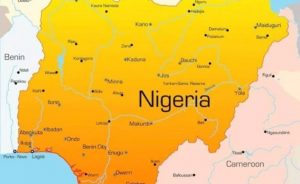Africa: The Significance of Expanded Brics in Today’s Global Landscape

MONROVIA — For the first time since Liberia joined the International Atomic Energy Agency (IAEA) in 1962, the agency’s Director General, Rafael Mariano Grossi, arrived in the country Thursday on a mission to jumpstart nuclear-based solutions to some of Liberia’s most pressing development challenges — beginning with cancer treatment, farming, and water safety.
Grossi’s visit, seen as a major diplomatic and technical milestone, comes amid growing demand for advanced medical services, climate-resilient agriculture, and clean water infrastructure. Welcomed at Roberts International Airport by Environmental Protection Agency (EPA) Executive Director Dr. Emmanuel Urey Yarkpawolo and Assistant Foreign Minister Karishma Pelham Raad, Grossi declared the mission “long overdue” but full of promise.
“This is the first time a Director General of the International Atomic Energy Agency visits Liberia. So, long overdue, but happy to be here,” said Grossi, emphasizing the agency’s intent to bring peaceful nuclear applications — not nuclear energy — to bolster Liberia’s development goals.
Cancer Treatment Center at JFK Medical Center
At the heart of the visit is a transformative healthcare initiative: the establishment of Liberia’s first-ever radiotherapy center at the John F. Kennedy Memorial Medical Center. The IAEA is providing specialized equipment and training to enable local cancer treatment, ending years of dependence on costly overseas medical travel.
“The cancer impact in the country is quite high,” Grossi noted. “We are going to be supporting the establishment of a new radiotherapy center at JFK, providing equipment and training to treat more patients here in Liberia.”
Currently, many Liberians with cancer are forced to seek treatment abroad, often at significant financial and emotional cost. The new partnership aims to save lives and build long-term oncology capacity in-country.
Nuclear Safety: A Wake-Up Call
Grossi’s visit follows a May 2024 emergency intervention when a radioactive Cesium-137 source was discovered in a storage room at JFK Hospital. The IAEA’s Incident and Emergency Centre dispatched a team that secured the source within 24 hours, avoiding a potential disaster and keeping the hospital fully operational.
The incident served as a catalyst for Liberia to rapidly accede to the IAEA Convention on Assistance in the Case of a Nuclear Accident or Radiological Emergency, along with five other key legal instruments. The move marked a significant step toward stronger nuclear governance and emergency preparedness.
Farming and Water: Nuclear Tools for Everyday Needs
Grossi’s mission also extends into rural life, where nearly 70 percent of Liberians depend on agriculture. Through nuclear techniques such as irradiation and isotope hydrology, the IAEA will help Liberia combat crop pests, increase yields, and better manage its freshwater sources.
“In agriculture, for instance, we can help improve crop yields and combat pests through techniques like irradiation,” Grossi said. “In water, we can support better resource management using isotope hydrology.”
The initiatives aim to enhance food security, promote climate resilience, and optimize water use amid growing environmental stress.
A Clean Energy Future?
While the focus remains on non-energy applications, Grossi hinted at Liberia’s long-term potential to explore nuclear energy through small modular reactors, already under consideration in other African countries like Ghana, Kenya, and Rwanda.
“Nuclear energy is clean energy and should not be reserved to a handful of countries,” he said. “It is absolutely a possibility for Liberians as well.”
Though no formal energy proposal is on the table, the comments suggest that IAEA’s support could expand should Liberia express interest in nuclear power as part of its energy mix.
High-Level Talks and Project Rollout
During his stay, Grossi is expected to meet President Joseph Boakai, Foreign Minister Sara Beysolow Nyanti, and other top officials to formalize timelines for project implementation under the agency’s technical cooperation program.
“We hope to give it a big push now with this visit,” he said, signaling the IAEA’s readiness to deepen its engagement with Liberia.
A New Chapter in Liberia-IAEA Relations
Liberia has been a nominal member of the IAEA for over 60 years, but political instability and limited technical capacity curtailed meaningful cooperation. That appears to be changing. The May 2024 radioactive source incident and Grossi’s historic visit have triggered a new era of proactive partnership.
By committing to international nuclear safety frameworks and investing in peaceful nuclear applications, Liberia is positioning itself to use science and technology as tools for development — from hospital wards and farm fields to freshwater reserves.
By Liberian Investigator.



